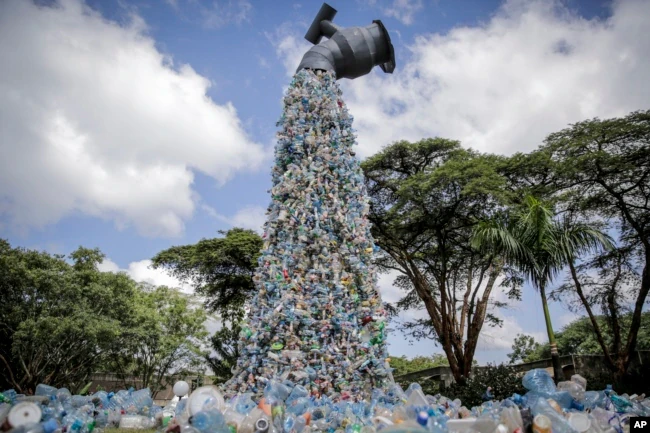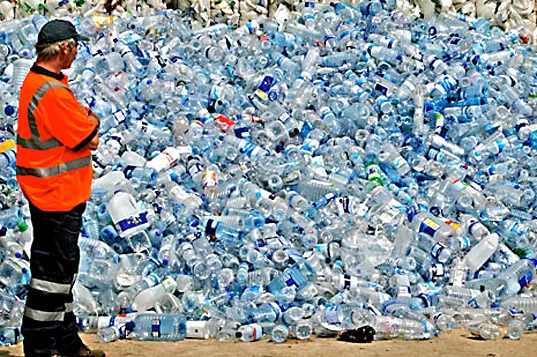Efforts to address the global plastic waste crisis hit a snag during recent negotiations in Kenya, as environmental advocates pointed fingers at the oil and gas industry for hindering progress. The goal of these United Nations-led discussions is to establish a treaty by the end of 2024 aimed at curbing the growing issue of plastic pollution, which is predominantly produced from fossil fuel derivatives.
During the talks, which saw participation from 150 countries in Nairobi, there was a struggle to align varying global perspectives. Erin Simon, from the World Wildlife Fund, expressed frustration over the delays caused by some nations prioritizing their plastic industry interests.
The key contention lies in how to effectively reduce plastic waste, with environmental groups pushing for a reduction in plastic production, while the oil and gas sector advocates for recycling and better waste management as solutions.

However, the effectiveness of recycling as a viable solution is questionable, with extensive research, including investigations by multiple sources, casting doubt on its efficacy. The debate also extends to whether the treaty should enforce binding global regulations or rely on voluntary commitments. According to experts, a comprehensive approach is required, but limiting new plastic production is crucial.
Despite the challenges, there’s a general consensus among most nations for a robust treaty. However, a few countries are advocating for a more lenient, voluntary approach. The difficulty lies in formulating a strategy that effectively addresses plastic waste and gains widespread support, especially from major oil and gas producers like China, Russia, Saudi Arabia, and the United States.
The influence of industry lobbyists at these discussions is notable, with a significant presence from the fossil fuel and chemical sectors. David Azoulay from the Center for International Environmental Law highlighted the impact of industry lobbying on the talks’ outcomes.
Prior to the negotiations, industry groups like the American Fuel & Petrochemical Manufacturers opposed restrictions on fossil fuel and plastic production, advocating for improved recyclability and waste management instead.
More To Discover
- Silkworms Challenge Nylon and Kevlar in Environmental Showdown: Genetically Enhanced Caterpillar Set to Revolutionize Green Fabric Production
- Rising Ocean Heat Waves Decimate Marine Life As Global Crisis Continues
- Seoul Government Uncovers High Levels of Toxic Chemicals in Shein Products
- Tiny Nuclear Battery Promises 50-Year Phone Charge, Breaking Radioactive Ground
ExxonMobil echoed this sentiment, emphasizing their efforts in enhancing recycling processes, while maintaining that reducing plastic usage isn’t necessary for solving the waste problem.
Environmental groups like Greenpeace have criticized the influence of fossil fuel companies in shaping the treaty discussions. Carroll Muffett from the Center for International Environmental Law warned that without significant changes, the next round of talks scheduled in Canada for April 2024 could end in failure due to the ongoing opposition from certain quarters.















